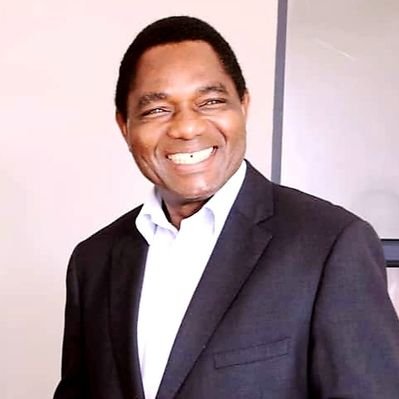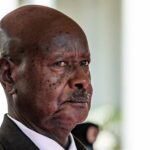
Hichilema vows ‘no Zambian will sleep hungry’ as he assumes office
Published on August 25, 2021 at 6:53 AM by Face of Malawi
Hakainde Hichilema took the reins of Zambia to cheers on Tuesday, promising to turn around the economy of this southern African country, plagued by a colossal debt, and to guarantee “real freedom” to all his fellow citizens.
The former perennial opponent, who promised in an early morning tweet “a new dawn in Zambia”, was sworn in before thousands of euphoric supporters at the Heroes Stadium in Lusaka. Many had stayed overnight to witness his inauguration.
“I swear to faithfully and diligently fulfill my duties,” he said, holding a bible, after a long wave to the predominantly red crowd, the color of his party and his tie for the day.
Several heads of state, but also regional opposition figures, came to greet a smooth political transition on a continent whose recent history has been marked by authoritarian leaders clinging to power for a long time.
“We have shown the world the resilience of our democracy,” said the man known on the street as “HH” or “Bally,” an affectionate term for an elder.
Mateyo Simukonda, 36, who arrived the day before from the copper mining region in the center of the landlocked country, confided to AFP his joy at witnessing “the total burial” of the previous regime “and of corruption”.
Candidate at 59 years old for the sixth time – he had sworn that it would be the last -, Mr. Hichilema was elected on August 12 thanks to a very high turnout and with a lead of nearly one million votes over the incumbent Edgar Lungu.
“The cost of living will soon be a reality,” he said on Tuesday, while inflation has made basic necessities unaffordable for a population where more than half live below the poverty line.
Zambians must be able to eat “three decent meals a day”.
“Truly free”
The self-taught businessman, now a millionaire, will also have to tackle the problem of a debt estimated at ten billion euros, half of which is owed to private creditors, notably Chinese.
His predecessor was criticized for having borrowed unreasonably, as he embarked on a frenzy of bridge, road and airport construction. Zambia was the first African country in late 2020 to default on its debt since the start of the pandemic.
Mr. Lungu had also become increasingly repressive of any criticism, shutting down independent media outlets and arresting opposition figures.
“HH” will ensure “that all Zambians are truly free,” with independent media and strong institutions. “We will restore the rule of law, general order, and bring our country back to normal.”
Claiming to have been arrested 15 times since he became a politician, HH denounced the “brutal” regime of hispredecessor, promising a “better democracy” to the millions of Zambians who lined up, sometimes until dawn, to elect him.
This democratic change is eagerly awaited by the youth, mobilized en masse “with energy and passion, and who made this day possible,” said the new president. More than half of the registered voters are under 35 years old.
In the coming months, all eyes will be on the new Zambian president to see if he “walks the talk.


